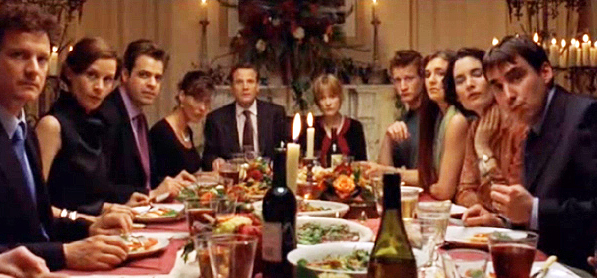
Much has been portrayed about the “singleton” in popular culture. Bridget Jones and her dinner party where she describes singletons as “covered in scales beneath their clothes” immediately comes to mind. So does the comic strip, “Cathy.” Or any brunch conversation on “Sex and the City.”
But what we don’t see explored in depth – much less at all – is the unconscious bias against the Never Married, especially in the workplace. Race, religion, creed, sexuality, gender, and ethnicity get all the air time, and rightfully so. Addressing bias is deeply uncomfortable, which is why it’s necessary that we tackle this one with as much intention as we do the others.
This is especially timely given marriage ages and rates are changing dramatically. Family planning, women with independent income, and more equitable gender attitudes have increased the average age of marriage to the late 20s, early 30s demographics. (Isn’t self advocacy and free will AMAZING?) By 40, about 80 percent of the population has been married at least once. That doesn’t seem like such a big deal until you look at it this way: This statistic leaves about one in five adults over 40 who have never been married.
Run those numbers in more conservative regions, like the south, where the average marrying age is below the national average, and you’ll see the gap widen even more – but not by much. In my experience, the attitudes and expectations in the south far out-pressure the statistics themselves. (True story: At 34, when having a career planning conversation with a named partner in my southern agency, he said “You’re knocking on the door of VP, but shouldn’t you focus on settling down and having a family?” INSERT SHOCKED FACE HERE.)
This pandemic has not only proven financial inequity across the country, but cultural inequity at work. Work-from-home mandates exposed our “private” lives and the staggering disparity in time allowance and freedom between the Never Married and everyone else – especially those juggling video conference calls alongside children fumbling through remote learning. This reality organically led me to many conversations exploring the phenomenon of the Never Married at work.
Pour some tea. It’s time for real talk.
The best way to uncover a subtle yet deeply affecting unconscious bias is to exemplify it out right. And I don’t believe in presenting a problem without a solution. The following three scenarios are the most common ways the Never Married bias plays out, coupled with behavioral tweaks to improve the problem.
- Distrust
Never Marrieds typically out-age the Marrieds’ experience of being single and childless. And generally speaking, we don’t trust what we don’t understand. In the case of the Never Married, we are often distrusted on some level because the majority can’t find an immediate point of relation.
Don’t believe me? Think about the older singles you know who have never been married compared to those who have but are no longer betrothed. Honestly ask yourself – who makes you more comfortable?
Small talk is important as it hot-wires connections with others. And in America, we have a terrible “sorting hat” habit where we must compartmentalize people by asking what they do, where they live, and their marital and family status. Just the sight of a wedding ring brings unspoken and shared comfort to those who are wed.
So what does that mean to the Never Marrieds, the ones without the inherent boundary created by that little golden circle? In my case, and with many others, we have experienced an unspoken distrust because we are un-relatable. If we go a layer deeper on the unconscious bias scale, our ability to commit is questioned because we don’t have an obvious responsibility like marriage or children to prove that we’re capable of sticking around. In short, we can be perceived as “flighty” though most people couldn’t immediately tell you that’s what they think – it’s more of a feeling.
Solution
When meeting someone new in ANY circumstance, but especially in a professional setting, practice asking introductory questions that buck convention. Keep these in your back pocket to inspire a more authentic and less prejudiced connection:
- What has your pandemic experience been like?
- What have you learned about yourself since working from home?
- What do you do to break up the time between work and life when working from home?
- What’s been the best part of your week?
- When we can travel freely, where is the first place you’ll go?
The point? Don’t be a lazy communicator. Try harder.
2. Misread chemistry
In a networking scenario, a Never Married woman passionate about a topic is often misperceived as being personally interested in their male conversation partner, leaving him to bail prematurely or play the girlfriend / wife card more obviously. This is especially infuriating as it makes us feel like social predators when we’re just excited about the topic at hand.
The truth? Social chemistry doesn’t mean “sex.” I want us as a social species to agree on this outright, but I realize that’s unlikely. I’ve done my job if I can get one person to think of it differently.
Solution
If you find yourself across the table from a Never Married passionate about the conversation and stirring up all that chemical energy – instead of throwing out your relationship status or bailing – keep the conversation on the professional aspect or shared interest. Ask questions about their experience in the context of work. This is a subtle redirection and hat tip to the nature of the conversation without making the Never Married feel like a predator.
The point? Our excitement does not make you prey. Get over yourself.
3. Greener grass
Marrieds, especially, are quick to play the “grass is greener” game with the Never Marrieds. Sure, we are not facing the same challenges as running a household of multiple people we wed and made. We aren’t juggling day care and extra curricular activities and remote school and tee times and play dates. But, we are supporting an entire household on our own without a shared income or someone else’s benefits.
We have to work harder to build community and relationships because they are not packaged up for us at the altar. And as we get older, we are faced with caring for aging parents alone. (CAN I GET AN AMEN?)
Our upside? We probably have more freedom and choice when it comes to how we design our time. I’ll at least give you that. But what I won’t concede is greener grass.
Solution
The point? Manure makes grass grow. Both sides of the fence are covered in crap. Focus on your own yard.
4. Incompletion
It is often assumed, wrongfully so, that a Never Married is not “complete” and therefore has an unstable, unfulfilling life. I get it. When you’re happily paired up, you can’t (and don’t want to) imagine or remember the alternative. And you want this companionship for everyone else. That’s super sweet!
HOWEVER. There is something to be praised in the Never Married who’s been single longer. Our inner fortitude is exceptional. Our ability to work autonomously is truly something to behold. And our self possession is off the charts. (Usually. Come on. We all have our clingy moments.)
Solution
When you find yourself assuming a Never Married doesn’t – or can’t – experience fulfillment, ask yourself these questions:
- What interests would I foster for myself that I can’t or don’t as part of a couple?
- If I weren’t married, how would I approach my work differently? How would I experience my workplace differently?
Find someone who has a life experience you want in your imaginative solo life and ask them what’s so great about it. Then take the essence of that – what does it feel and look like – and identify what part of your coupled life evokes the same.
It’s there – you just need to pay attention.
“Never” doesn’t mean “won’t“
The fact that no one has put on a ring on it does not make me – or anyone else – damaged goods or untrustworthy or socially desperate or even unburdened. It just means it hasn’t happened yet. And it might not at all.
In fact, it makes us strong and tenacious as hell. Because nothing is more difficult than going it alone for some time or forever. We are not to be pitied or distrusted or disrespected. We should be admired for our fortitude and how it directly underscores our success. And if you work with us, our success is your success.
As Moira on “Schitt’s Creek” says, “When one of us shines, all of us shine.”


